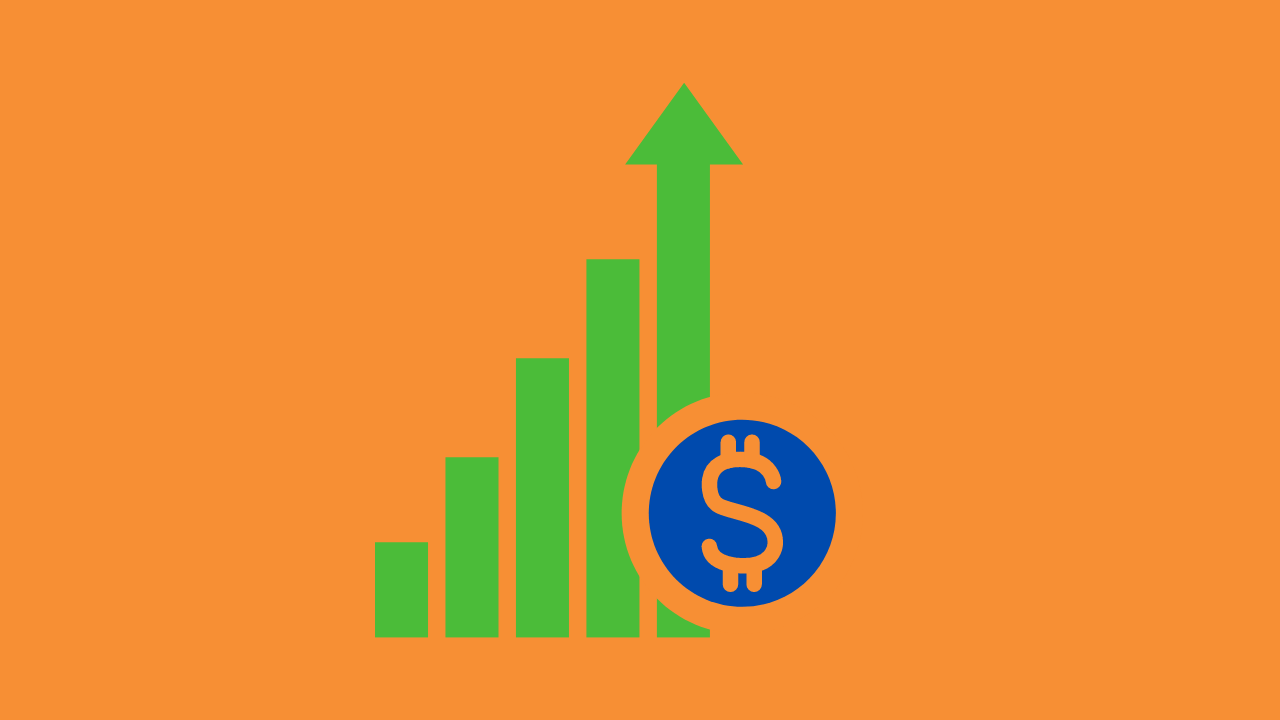When I first entered the share market world, I spend enormous time googling the basic stock market terms which are used in the share market.
Although there are many terminologies which a stock market trader should know, they are a handful of stock market terms that are used very often.
This basic domain knowledge of these stock market terms is really important if you want to enter the stock market to succeed.
In this blog, we are going to present an elementary guide for beginners to help them understand the basic stock market terms used in the share market.
So let’s get started with the stock market terms :
Basic Terminologies Of Stock Market
Read Also : What Is a Mutual Fund and How Does It Work
Share Market
A share market is a market in which shares of a particular company are purchased and sold. The stock market is a definite example of a share market.
Short selling
When an investor wants to earn money in a bear market, then he does short selling.
This can be done by putting a sell position at a given market price (say $100) and then if the price fall (say $80), then he buys that share.
By doing this way he can have a profit of $20 and that share as well. This is generally done when an investor feels that price of a particular stock is expected to fall in the future.
Demat account
Demat account is an account that stores securities in an electronic form. There was a time when securities were bought and sold on the market floor where the shares were traded in paper form, but nowadays, the whole process has gone online!
In India, there are two depositories that maintain our Demat account. They are the National Securities Depository Limited (NSDL) and Central Depository Services Limited (CDSL).
Equity shares
Also known as common shares, an equity share represents a form of fractional ownership in a company. A vital source of raising capital, as an equity shareholder, you have voting rights.
In other words, if you own a sizeable amount of equity shares of a firm, you have the right to have your say in the company’s affairs.
Face value
When a company issues shares, each share has a face value. This refers to the value of the stock at the time of issuance. The company that issues the stock decides the face value and it does not change over time. And in case you hear someone say par value instead of face value, don’t panic. Both terms mean the same thing.
Read Also : Gold Investment for Beginners
Sensex
Sensex is a figure that indicates all the relative share prices that are listed on the Bombay Stock Exchange.
Nifty 50
The Nifty 50 Index, called the National Stock Exchange of India, is the primary and brad based stock market index for the equity market of India.
The Nifty 50 consists of 50 Indian company stocks in 12 different sectors, and it is one out of two stock indices that are mainly used in the stock market.
Debentures
A type of debt instrument that is not secured by physical assets or collateral. Debentures are backed only by the general creditworthiness and reputation of the issuer.A debenture is an unsecured form of investment.
Dividend
A portion of the company’s earnings decided to pay to its shareholders in return to their investments. It is usually declared as a percentage of current share price or some specified INR value, usually decided by the board of directors of the company.
Bull Market
An opposite of the bear market, a bull market is a market where the prices of the stocks are increasing over a prolonged period of time. A single stock and a sector can be bullish at one time and bearish at another time.
Bear Market
A market in which stock prices are falling consistently.It refers to a period in which the prices of equity shares fall consistently. It’s usually a condition where share prices fall by 20% from recent hghs.
Primary Market
There are two types of markets where shares of the company are sold. The primary market is the market where the company sells its shares to the public for the first time.
Here, the buyers cannot sell the shares allotted to them to anyone, as the selling in only done by companies. Companies sell their shares to raise money from the markets. This is done through an IPO.
Call option
This grants a buyer the right, but not the obligation, to purchase underlying assets at a particular price and within a specified period of time.
Secondary Market
The secondary market is the market where a company’s shares are exchanged between different types of investors. This is a marketplace where other instruments are also traded such as futures and options, ETFs, etc.
Short Interest
Short interest refers to the number of shares all traders around the world are currently holding as a short position against the stock.
If a company has outstanding shares (float) of 10 mil shares, and 1 mil of those shares are short, the short interest is 10%. When stocks have short interest 30% or higher, there is potential for short squeezes.
More Information : Stock Trading Terms
Limit Orders
A limit order is when you ask your broker to buy you shares and state the most you are willing to pay.
A limit order of 1000 at 5.05 will not fill higher than that price. That means if the price moves quickly, you may not get 1000 shares.
Day Trading
At the point when a day broker places an exchange they are hoping to profit by a stock’s value development around the same time.
They place the exchange and are not hoping to hold an exchange for the time being.
There is no nightly ownership involved and this is called day trading. Day trading is intrinsically risky and expects you to have astounding exchange and management skills.
IPO
Initial Public Offer or IPO is the process through which stock markets sell their shares for the first time to public with the intention to raise money.
An IPO is followed by the listing of the shares in the secondary markets, where the price of the shares fluctuate as per the concepts of demand and supply and overall market factors.
Index
An index is the cumulative indicator of the prices of all stocks listed on a particular exchange or in a sector or category. An index is the average price.
For example, Nifty is the average price of the 50 top stocks listed on the National Stock Exchange, whereas Sensex is the price of 30 top stocks listed on the Bombay Stock Exchange.
Cost of Capital
This is the cost of borrowing funds from the market. The ROE and the ROCE should be more then the cost of capital or else it would make little sense for the company to borrow funds.
For stocks in the emerging markets the cost of capital should be 300 to 400 basis points above the risk free rate of return. COC = Risk free rate of return + Equity risk premium.
Portfolio
A collection of investments owned by an investor makes up his or her portfolio. You can have as few as one stock in a portfolio, but you can also own an infinite amount of stocks or other securities.
Averaging Down
When an investor buys more of a stock as the price goes down. This makes it so your average purchase price decreases.
You might use this strategy if you believe that the general consensus about a company is wrong, so you expect the stock price to rebound later.
Blue chip stock
These are generally issued by established and financially stable companies that have been in operations for a considerable period of time. Market capitalization for blue chip stocks often runs into lacs of crore.
Bonds
It is promissory note issued by companies or government to its buyers. It speaks about the specified amount held for a specified time period by the buyer.
Read Also : Basic Knowledge of Share Market
Debentures
A type of debt instrument that is not secured by physical assets or collateral. Debentures are backed only by the general creditworthiness and reputation of the issuer.A debenture is an unsecured form of investment.
FAQs On Stock market terms
What are the terms used in stock market?
Basic Stock Market Terms you should know Agent: An agent is a stock brokerage firm which does the buying/selling of shares on behalf of the investor in the stock market.
- Ask/Offer
- At the money
- Dividends
- Broker
- Bear Market
- Bull Market
- Stock exchange
- Trading volume
- Liquidity
- Market capitalisation
What is nifty full form?
Nifty stands for ‘National Stock Exchange Fifty’ and is the index for the National Stock Exchange.
What is market terminology?
Stock market terminologies are industry-specific stock market terms that are frequently used when we read or talk about the stock market. Experts and novices often use these terms to talk about strategies, stock market charts, indices, and other elements of the stock market.
What are the 3 types of stocks?
Here are the three main types of stocks:
- Common stock – Common stocks make up the majority of the buzz on Wall Street.
- Preferred stock – Preferred stock is more like a bond than common stock.
- Share classes – Within the boundaries of common or preferred shares there are different share classes.
Read Also : What Is Share Market
What is trade terminology?
The terms of a sale. The setting of responsibilities of the buyer and the seller in a sale, including: sale price, responsibility for shipping, insurance and customs duties. The most widely used trade terms ate Incoterms 2010, which are published by the International Chamber of Commerce.
Conclusion
Learning about the stock market is pretty simple if you follow the right steps and learn the fundamentals first.Knowing these 25 given stock market terms will help you understand the stock market and make you a good trader.
However, it takes time to grasp all the terms and remember while being in the stock market, but once you do, these stock market terms will become a crucial part of your daily life trading.





